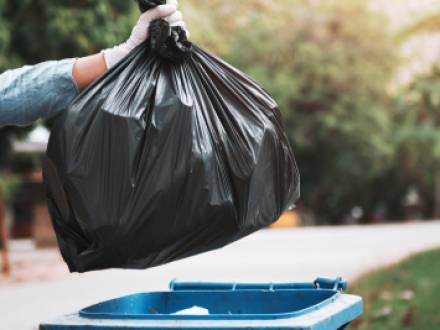
Trash as Evidence: Can Police Search Your Garbage for Drugs?
 Perhaps the police are trying to make a drug case against you, and you look out your window to see them digging through the trash you just set out for collection. Most of us never think twice about what we throw away. From old pill bottles, empty baggies, and receipts to even more damning evidence like drug paraphernalia, it all goes into the trash.
Perhaps the police are trying to make a drug case against you, and you look out your window to see them digging through the trash you just set out for collection. Most of us never think twice about what we throw away. From old pill bottles, empty baggies, and receipts to even more damning evidence like drug paraphernalia, it all goes into the trash.
You should know that what you put in your trash can in the state of Maryland has the potential to become evidence in drug charges filed against you. In fact, "trash pulls" are often used as a method of gathering information prior to securing a search warrant. Can the police search through your garbage looking for evidence against you? The answer to that depends on the circumstances surrounding the trash pull.
If you see law enforcement going through your trash, or you have reason to believe they have done so, do not wait until charges are filed against you. Speak to an experienced Annapolis, MD criminal defense attorney as quickly as possible so he or she can begin building a strong defense on your behalf.
What is the Legal Standard for Searches Through a Person’s Garbage Can?
Maryland courts generally follow the U.S. Supreme Court's ruling in California v. Greenwood (1988), which determined that once trash is placed outside for collection, individuals have no reasonable expectation of privacy regarding the contents of the trash can. If the trash is on the curb or in an area that is accessible to the public, police do not need a warrant to look through the trash. However, if the trash is inside your home, garage, or a fenced yard, it is protected.
What Are Police Looking for During a Trash Pull for a Drug Investigation?
What law enforcement is looking for in your trash depends on the case they are making against you. If the police believe that you are selling illegal drugs, they may be looking for things like drug residue in empty baggies, prescription bottles, with or without labels, or marijuana stems and seeds.
If the case law enforcement is attempting to make against you is for drug manufacturing, they may be looking in your trash for empty bottles of ingredients used to make methamphetamine or another type of drug. Any drug paraphernalia can help law enforcement build a drug case against you. Once incriminating evidence is found in your trash, it is used to support probable cause for a search warrant of your home, car, or person.
What Are the Risks for Law Enforcement in Trash Pulls?
First, law enforcement must be certain that the trash they are searching is in a location with no expectation of privacy. Police officers may not trespass into a closed yard or pry into cans stored inside a garage, even if the garage door is open. Generally, a single piece of evidence is insufficient to justify a search warrant. Courts typically require multiple items that indicate drug possession, manufacture, or trafficking, or corroborating circumstances, before authorizing a search warrant.
What Are Some Common Defenses Used Against Evidence Found in Trash Cans?
Although your specific defense will depend on the circumstances, some of the more common defenses used against evidence from a trash pull include:
- Evidence may be suppressed if the police exceeded lawful boundaries.
- Probable cause may be challenged if the evidence from the trash was not sufficient to warrant a search of your home.
- There were chain of custody issues, or the trash was contaminated or misidentified, making it unclear if the trash was actually yours.
- The police made mistakes during your arrest, or your constitutional rights were violated.
Contact an Anne Arundel County Drug Crimes Attorney
If you have been charged with a drug crime based on evidence taken from your trash, do not try to handle this situation alone. Drug convictions can result in years in prison, along with many other collateral consequences. Call an experienced Centreville, MD criminal defense lawyer from Henley & Henley, Attorneys at Law. Our attorneys have more than 50 years of combined legal experience. Call 410-280-0530 to schedule your initial attorney meeting.




